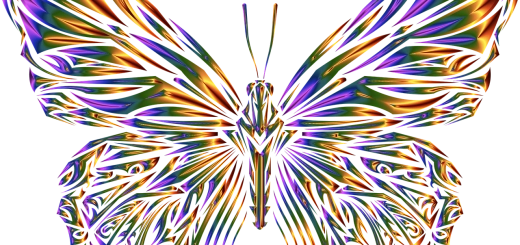Why Do Cats Purr After Giving Birth? Should I Worry?

Looking for more amazing products? Check out our online store and explore our collection here! Happy shopping!
Before diving in, please note: This post is for informational purposes only. If you’d like to know more about how we approach topics, feel free to check out our friendly Disclaimer Page.
Hey there, amazing readers! 
We’re committed to delivering quality posts, and your support (even just sticking around despite the ads) means everything to us. So, bear with us, and thanks for helping us keep the good vibes rolling. Now, on to the fun stuff!
TRANSLATE BUTTON AT THE END OF THE ARTICLE
When a cat gives birth, you may notice that she starts purring frequently.
This behavior can be puzzling for many cat owners, especially if it’s accompanied by other new mother behaviors.
Understanding why cats purr after giving birth and whether you should be concerned can help ensure that both the mother cat and her kittens are healthy and well cared for.
Why Do Cats Purr After Giving Birth?
1. Instinctive Behavior
Explanation:
Purring is a natural instinct for cats and serves multiple purposes throughout their lives.
After giving birth, a mother cat may purr to reassure herself and her kittens.
The sound of purring can create a calming environment, which is beneficial for both the mother and her newborns.
Signs to Look For:
Soft, rhythmic purring sound
Relaxed posture
Comfort-seeking behavior
What You Can Do:
Ensure the birthing area is quiet and stress-free.
Avoid unnecessary disturbances and provide a warm, comfortable space for the mother and her kittens.
2. Bonding with Kittens
Explanation:
Purring can help strengthen the bond between the mother cat and her kittens.
The sound of purring is soothing and can encourage the kittens to nurse and stay close to their mother.
This close contact is crucial for the kittens’ health and development.
Signs to Look For:
Kittens nursing or cuddling close to the mother
The mother cat frequently purring while lying with her kittens
Kittens appearing calm and content
What You Can Do:
Allow the mother cat to bond with her kittens undisturbed.
Make sure she has easy access to food, water, and a clean litter box to support her needs while caring for her young.
3. Pain or Discomfort
Explanation:
While purring is usually a sign of contentment, it can also be a response to discomfort or pain.
After giving birth, a cat might experience some level of physical discomfort or pain from the delivery process or from the uterus contracting as it returns to its normal size.
Signs to Look For:
Frequent purring coupled with signs of discomfort, such as restlessness or reduced movement
Visible signs of physical discomfort
Loss of appetite or reluctance to care for kittens
What You Can Do:
Monitor the mother cat closely for signs of persistent discomfort or any unusual behavior.
If you are concerned about her well-being, consult a veterinarian to ensure that there are no complications from the birth.
Discover "Dog Care: Learning How to Care for Your Furry Friend
"
4. Stress Relief
Explanation:
The process of giving birth can be stressful for a cat, and purring may help alleviate some of that stress.
The soothing sound of purring can help the mother cat relax and recover from the physical and emotional strain of labor.
Signs to Look For:
Purring in conjunction with a calm and relaxed demeanor
Seeking a quiet, secure area
Normal eating and drinking behavior
What You Can Do:
Provide a calm and secure environment for the mother cat.
Ensure she has a private and quiet area where she feels safe to recover and care for her kittens.
5. Healing Process
Explanation:
Purring is thought to have healing properties due to the vibrations it creates.
These vibrations can promote healing and reduce pain, which might be why a mother cat purrs after giving birth.
The vibrations from purring can aid in the recovery process by helping to heal tissues and alleviate discomfort.
Signs to Look For:
Gradual improvement in the mother’s physical condition
Normal behavior returning as the healing process progresses
No signs of infection or complications
What You Can Do:
Keep the birthing area clean and monitor for any signs of infection or complications.
Ensure the mother cat has access to a nutritious diet to support her recovery and milk production.
6. Communication with Kittens
Explanation:
Purring may serve as a form of communication between the mother and her kittens.
It helps the kittens identify their mother’s presence and can encourage them to stay close.
This communication is essential for the kittens’ survival in the early days of life.
Signs to Look For:
Kittens responding to the purring by moving closer to their mother
The mother cat using purring to guide or comfort her kittens
Kittens appearing calm and secure in their environment
What You Can Do:
Ensure that the mother cat can communicate effectively with her kittens.
Avoid handling the kittens excessively and allow the mother to manage their care and feeding.
Should I Worry?
In most cases, a cat purring after giving birth is a normal behavior and not a cause for concern.
However, it’s essential to monitor both the mother cat and her kittens for any signs of distress or complications.
If you notice any of the following, it’s best to consult a veterinarian:
Persistent signs of discomfort or pain
Abnormal behavior or loss of appetite
Signs of infection or complications with the birthing process
Failure of the mother cat to care for her kittens
Conclusion
Purring after giving birth is a common and generally positive behavior in cats.
It can signify comfort, bonding, and healing.
By understanding the reasons behind this behavior and providing a supportive environment, you can help ensure the well-being of both the mother cat and her kittens.
If you have any concerns about their health or behavior, don’t hesitate to seek professional veterinary advice.

The Enlightenment Journey is a remarkable collection of writings authored by a distinguished group of experts in the fields of spirituality, new age, and esoteric knowledge.
This anthology features a diverse assembly of well-experienced authors who bring their profound insights and credible perspectives to the forefront.
Each contributor possesses a wealth of knowledge and wisdom, making them authorities in their respective domains.
Together, they offer readers a transformative journey into the realms of spiritual growth, self-discovery, and esoteric enlightenment.
The Enlightenment Journey is a testament to the collective expertise of these luminaries, providing readers with a rich tapestry of ideas and information to illuminate their spiritual path.
Our Diverse Expertise
While our primary focus is on spirituality and esotericism, we are equally passionate about exploring a wide range of other topics and niches 

To ensure we provide the most accurate and valuable insights, we collaborate with trusted experts in their respective domains 
Our blog originally focused on spirituality and metaphysics, but we’ve since expanded to cover a wide range of niches. Don’t worry—we continue to publish a lot of articles on spirituality! Frequently visit our blog to explore our diverse content and stay tuned for more insightful reads.
Hey there, amazing reader! 
Check out our store here and take a peek at some of our featured products below! Thanks for being awesome!











